Image
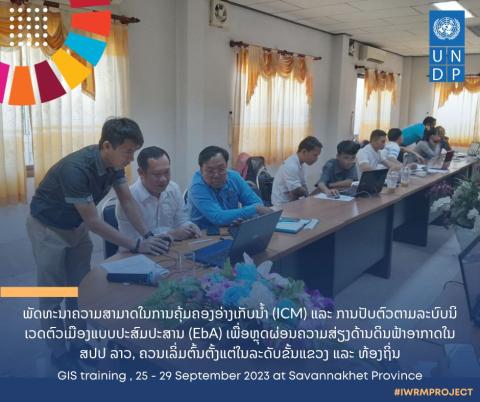
Project Number
Integrated Water Resource Management and Ecosystem-based Adaptation (EbA) in the Xe Bang Hieng River Basin and Luang Prabang City
Project Status
Status 3
Project Date
Project category
Category 3
Project Stage
Stage 3
Project Area of Work
Area of Work 3
Project Donor & Co-financing
Donor 3
Project Contact Details
For more information, please contact:
Phouphet Chittaphone
Database Management and Communication Officer IWRM-EbA Project
Email: [email protected]
Phouphet Chittaphone
Database Management and Communication Officer IWRM-EbA Project
Email: [email protected]
Share:
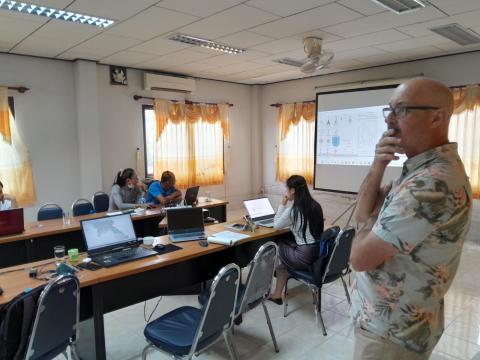
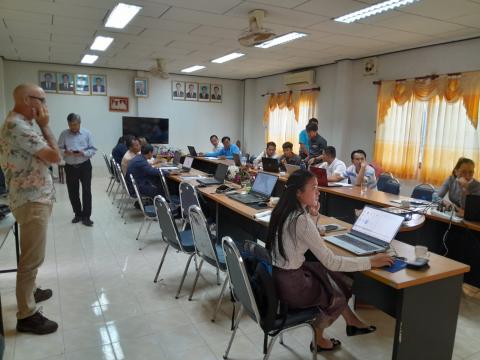
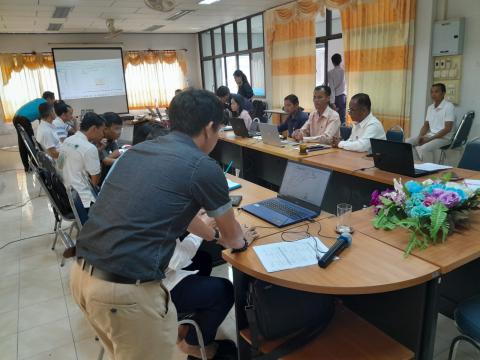
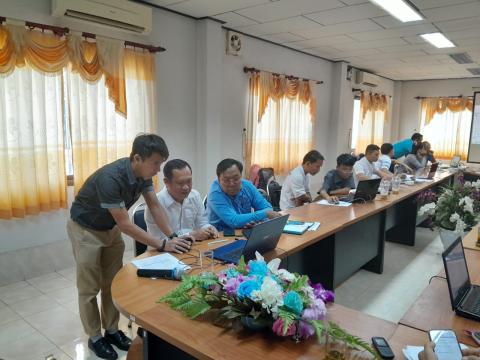
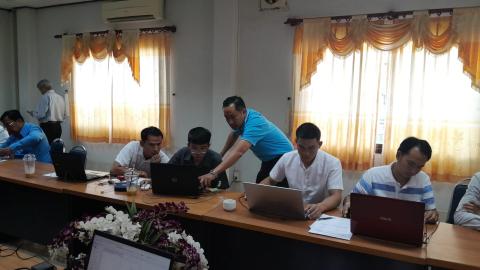
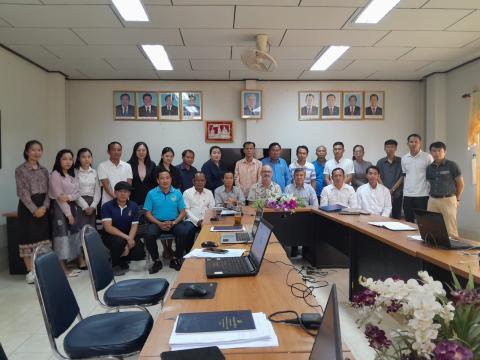
"Empowering Technical Staff: Comprehensive GIS Training for Enhanced Geospatial Skills"
Project Location
LuangPabang City and Xe Bang Hieng River Basin, Savanhnakhet Province
Project Description
The impacts of climate change in the Xe Bang Hieng River Basin and urban centers like Luang Prabang city present significant challenges to communities, ecosystems, and infrastructure. Seasonal flooding in the Xe Bang Hieng River Basin destroys agricultural lands, displaces families, and damages critical infrastructure, while prolonged droughts threaten water availability, ecosystems, and food security. In Luang Prabang city, a UNESCO World Heritage Site, urban flooding risks damaging essential infrastructure, disrupting tourism, and endangering cultural heritage. These challenges are exacerbated by deforestation and rapid urbanization, which increase vulnerabilities and undermine resilience.
To address these issues, UNDP, in partnership with the Government of Lao PDR and supported by the Global Environment Facility (GEF), is implementing the Integrated Water Resource Management and Ecosystem-Based Adaptation (IWRM-EbA) program. This initiative aims to build resilience to climate-induced hazards through a combination of ecosystem restoration, community-based adaptation strategies, and improved water resource management. By rehabilitating forests and wetlands, the program seeks to create natural buffers against floods and droughts while promoting sustainable land use practices to combat deforestation and soil degradation. Simultaneously, it supports local communities in adopting climate-smart agriculture, developing resilient infrastructure, and implementing disaster risk reduction plans tailored to local needs.
The program also focuses on improving water governance and upgrading water storage, irrigation systems, and flood control infrastructure to better manage the impacts of extreme weather events. In Luang Prabang, targeted efforts include enhancing urban drainage systems and implementing flood prevention measures to protect critical infrastructure and safeguard cultural heritage. These integrated actions are designed to empower rural and urban populations, restore vital ecosystems, enhance water management practices, and preserve the unique cultural value of Luang Prabang.
Through collaborative efforts involving government agencies, local communities, and international partners, the IWRM-EbA program adopts a sustainable and inclusive approach to tackling climate change. By addressing the root causes of vulnerability and leveraging nature-based solutions, the initiative aims to build long-term resilience for communities and ecosystems in the Xe Bang Hieng River Basin and Luang Prabang city, contributing to the broader goals of climate adaptation, disaster risk reduction, and sustainable development in Lao PDR.
To address these issues, UNDP, in partnership with the Government of Lao PDR and supported by the Global Environment Facility (GEF), is implementing the Integrated Water Resource Management and Ecosystem-Based Adaptation (IWRM-EbA) program. This initiative aims to build resilience to climate-induced hazards through a combination of ecosystem restoration, community-based adaptation strategies, and improved water resource management. By rehabilitating forests and wetlands, the program seeks to create natural buffers against floods and droughts while promoting sustainable land use practices to combat deforestation and soil degradation. Simultaneously, it supports local communities in adopting climate-smart agriculture, developing resilient infrastructure, and implementing disaster risk reduction plans tailored to local needs.
The program also focuses on improving water governance and upgrading water storage, irrigation systems, and flood control infrastructure to better manage the impacts of extreme weather events. In Luang Prabang, targeted efforts include enhancing urban drainage systems and implementing flood prevention measures to protect critical infrastructure and safeguard cultural heritage. These integrated actions are designed to empower rural and urban populations, restore vital ecosystems, enhance water management practices, and preserve the unique cultural value of Luang Prabang.
Through collaborative efforts involving government agencies, local communities, and international partners, the IWRM-EbA program adopts a sustainable and inclusive approach to tackling climate change. By addressing the root causes of vulnerability and leveraging nature-based solutions, the initiative aims to build long-term resilience for communities and ecosystems in the Xe Bang Hieng River Basin and Luang Prabang city, contributing to the broader goals of climate adaptation, disaster risk reduction, and sustainable development in Lao PDR.
Project Outcomes & Impacts
The IWRM-EbA Project aims to strengthen community resilience to climate-related hazards such as floods, landslides, and droughts through the implementation of Ecosystem-based Adaptation (EbA) practices. By restoring and sustainably managing ecosystems like forests, wetlands, and rivers, the project enhances essential services such as water regulation, erosion control, and soil conservation. It also focuses on building the technical capacity of government staff and local communities through tools like Geographical Information Systems (GIS) for effective land and water resource management. Additionally, the project integrates EbA and Integrated Water Resource Management (IWRM) strategies into local and national development plans and policies, ensuring long-term sustainability. Importantly, it contributes to the preservation of cultural heritage sites and supports alternative livelihoods, enhancing economic resilience and social stability in Luang Prabang.
The impact of the project is evident in the increased resilience of communities to natural disasters and climate change, promoting their safety and well-being. It fosters sustainable development by maintaining healthy ecosystems that support long-term environmental, social, and economic stability. Strengthened governance and improved decision-making enable government agencies to address climate challenges more effectively, while empowering stakeholders to actively participate in resource management. Finally, the project establishes Luang Prabang as a model for integrating EbA and IWRM approaches, setting a benchmark for climate adaptation and resilience across Lao PDR and the region. 🌱🌏
The impact of the project is evident in the increased resilience of communities to natural disasters and climate change, promoting their safety and well-being. It fosters sustainable development by maintaining healthy ecosystems that support long-term environmental, social, and economic stability. Strengthened governance and improved decision-making enable government agencies to address climate challenges more effectively, while empowering stakeholders to actively participate in resource management. Finally, the project establishes Luang Prabang as a model for integrating EbA and IWRM approaches, setting a benchmark for climate adaptation and resilience across Lao PDR and the region. 🌱🌏
Project Media & Reports
Image

Image

Image

Image

Image

Image

